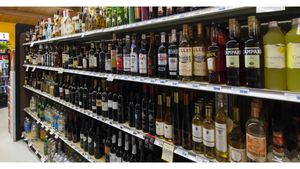LABEL APPLICATIONS 2004-09-13 (1)
From low carbs to trans fats, consumers have entered a new era of dietary awareness. More than ever before, shoppers are reading labels, learning about ingredients and increasing their level of knowledge regarding the foods they buy. At the same time, manufacturers have responded with a host of new or reformulated products -- along with the caravan of advertising, promotion and merchandising that
September 13, 2004
ROBERT VOSBURGH
From low carbs to trans fats, consumers have entered a new era of dietary awareness. More than ever before, shoppers are reading labels, learning about ingredients and increasing their level of knowledge regarding the foods they buy. At the same time, manufacturers have responded with a host of new or reformulated products -- along with the caravan of advertising, promotion and merchandising that goes along with such rollouts. As the final link in the chain connecting products and consumers, supermarkets are playing an increasingly important role in this extended relationship. Leah McGrath is corporate dietitian for Ingles Markets, Asheville, N.C. In this role, she leads the 200-store chain's shoppers in separating the hype from the reality in today's food claims.
SN: Are you finding that more consumers read labels? What types of questions are they asking you?
McGrath: Yes. They don't always understand about "net carbs" and some ask if this is a way manufacturers are "trying to trick" them.
SN: A number of manufacturers have already reformulated products that address specific nutrition concerns. Are consumers picking up this information from them?
McGrath: If you mean trans-fat labeling in regards to reformulating products, yes, many consumers seem to be aware of this and are actively looking for it on labels already.
SN: What do consumers need to know as food labels change in regards to trans fats, low-carb and portion-related information?
McGrath: They need to remember that if a manufacturer takes one thing out they usually have to put something else in to "fool" your taste buds. The bottom line is portion size and how many calories you eat.
SN: What do you think the next areas of concern might be (sugar, sodium, etc.), and why? McGrath: There are many possibilities regarding the next trend, or area of concern/interest, including sodium content, partially hydrogenated oils and organics. The first two are candidates because of health-related issues and organics because of environmental awareness. However, I do not think any of these will prove to have as big an effect on the market as the low carb "craze" did.
About the Author
You May Also Like




